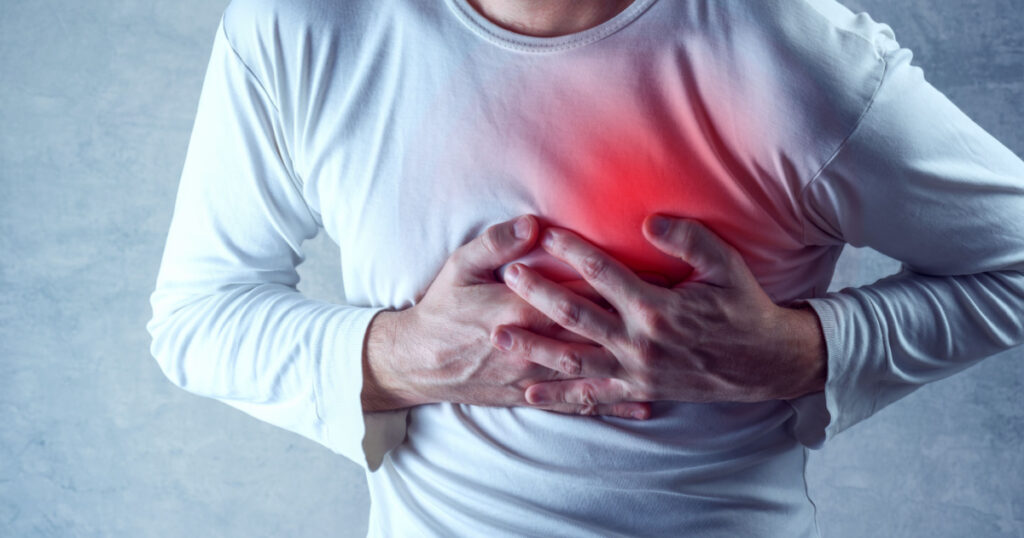Cancer is a devastating disease that affects millions of people across the globe, it’s one of the leading causes of death worldwide. Unfortunately, many people fail to recognize the early warning signs of cancer, often ignoring them until the disease has progressed to a critical stage.
Early detection is absolutely vital in the fight against cancer, as it significantly improves the chances of successful treatment and recovery. Therefore, it is essential that everyone be aware of the potential signs and symptoms that could indicate the presence of this life-threatening illness.
The signs of cancer are not always obvious, especially in the early stages of the disease. Many symptoms can be easily mistaken for more benign conditions, leading individuals to overlook them until the cancer has advanced. Here are 20 cancer signs that people often ignore until it’s too late:
1. Unexplained weight loss

Losing weight without trying could be a sign of cancer. It could be caused by a loss of appetite due to nausea or pain, but scientists also believe it could be due to certain chemicals that cancer may release into your blood. This is especially true for cancers like leukemia and lymphoma, which affect the blood system.
2. Fatigue

Feeling tired all the time, even after getting enough sleep, could be a sign of cancer. Fatigue is one of the most common symptoms of cancer and can affect people at any age. It’s usually caused by something else, like anemia or depression.
3. Persistent cough

A cough that lasts for more than two weeks could be a sign of lung cancer. A persistent cough can also be an indication of pneumonia, bronchitis and other lung diseases. If you start coughing up blood, speak to your medical provider immediately.
4. Shortness of breath

Difficulty breathing could be a sign of lung cancer or other types of cancer. This is called dyspnea. See your doctor if you notice that you’re taking deep breaths and still feeling short of breath, or if your breathing seems to be labored.
5. Chest pain

Pain in the chest could be a sign of lung cancer or other types of cancer. See your doctor or go to the emergency room if you have chest pain. Chest pain could also be a sign of a heart attack requiring immediate medical attention.
6. Abdominal pain

Pain in the abdomen could be a sign of ovarian, pancreatic, liver, or other types of cancer. See your healthcare provider if you have abdominal pain. Abdominal pain could also be a sign of intestinal blockage or gallstones requiring immediate medical attention.
7. Changes in bowel habits

Changes in bowel habits, such as diarrhea or constipation, could be a sign of colon cancer. See your health care provider if you have changes in bowel habits.
8. Blood in urine or stool

Blood in the urine or stool could be a sign of bladder, kidney, or colon cancer. See your healthcare provider if you have blood in your urine or stool. Also, if you notice changes in urination patterns, this could also be a sign of cancer. If you suddenly need to urinate more often than usual or have difficulty starting or stopping urination, this could be a sign of bladder cancer. See your healthcare provider if you have these symptoms.
9. Difficulty swallowing

Difficulty swallowing could be a sign of throat cancer or esophageal cancer. See your healthcare provider if you have difficulty swallowing. Difficulty swallowing could also be a symptom of a less serious condition, such as acid reflux or GERD.
10. Hoarsenes

Hoarseness could be a sign of throat cancer or laryngeal cancer. See your healthcare provider if you have hoarseness. Hoarseness could also be a symptom of a less serious condition, such as sinusitis or bronchitis.
11. Skin changes

Changes in the skin, such as darkening or yellowing, could be a sign of skin cancer. See your healthcare provider if you have a change in the color or appearance of patches of skin. Skin changes also could be a symptom of a less serious condition, such as psoriasis or eczema.
12. Sores that don’t heal

Sores that don’t heal could be a sign of skin cancer or other types of cancer. See your healthcare provider if you have sores that don’t heal or that bleeds. Sores also could be a symptom of a less serious condition, such as shingles (herpes zoster) or chickenpox.
13. Swollen lymph nodes

Swollen lymph nodes could be a sign of lymphoma or other types of cancer. See your healthcare provider if you have swollen lymph nodes. Swollen lymph nodes also could be a symptom of an infection or other less serious condition, such as mononucleosis.
14. Headaches

Headaches could be a sign of brain cancer. See your healthcare provider if you have headaches that don’t go away or worsen. Headaches also could be a symptom of another less serious condition, such as stress, sinus infections, or tension headaches.
15. Vision changes

Vision changes could be a sign of eye cancer. See your healthcare provider if you have vision changes that don’t go away or get worse. Vision changes also could be a symptom of another less serious condition, such as a detached retina or cataracts.
16. Bone pain

Bone pain could be a sign of bone cancer or other types of cancer that have spread to the bones. See your healthcare provider if you have bone pain that doesn’t go away or get worse. Bone pain also could be a symptom of another less serious condition, such as arthritis or osteoporosis.
17. Joint pain

Joint pain could be a sign of bone cancer or other types of cancer that have spread to the bones. See your healthcare provider if you have joint pain that doesn’t go away or get worse. Joint pain also could be a symptom of another less serious condition, such as arthritis or osteoporosis.
18. Nausea and vomiting

Nausea and vomiting could be a sign of cancer, especially if it is accompanied by other symptoms. Call your healthcare provider if you have nausea or vomiting that lasts for more than one day. If you have these symptoms with other signs and symptoms of bone cancer, such as weight loss, back or chest pain, and bowel movement changes, see your healthcare provider immediately.
19. Fever

A fever that lasts for more than a few days could be a sign of cancer. If you have a fever that lasts for more than a few days, call your healthcare provider. If you have other signs and symptoms of cancer, such as weight loss, back or chest pain, and bowel movement changes, see your healthcare provider immediately.
20. Night sweats

Night sweats could be a sign of lymphoma or other types of cancer. If you have night sweats that last for more than a few days, call your healthcare provider.
If you experience any of these symptoms, seeing a doctor as soon as possible is important. Early detection is critical in the fight against cancer, and the sooner you seek treatment, the better your chances of survival.
In addition to being aware of the signs and symptoms of cancer, there are other steps you can take to reduce your risk of developing cancer. These include:
- Eating a healthy diet that is rich in fruits and vegetables
- Exercising regularly
- Avoiding tobacco products
- Limiting alcohol consumption
- Protecting your skin from the sun
- Getting regular cancer screenings
By taking these steps and being aware of the signs and symptoms of cancer, you can help protect yourself and your loved ones from this devastating disease.
Disclaimer: This information is not intended to be a substitute for professional medical advice, diagnosis or treatment and is for information only. Always seek the advice of your physician or another qualified health provider with any questions about your medical condition and/or current medication. Do not disregard professional medical advice or delay seeking advice or treatment because of something you have read here.